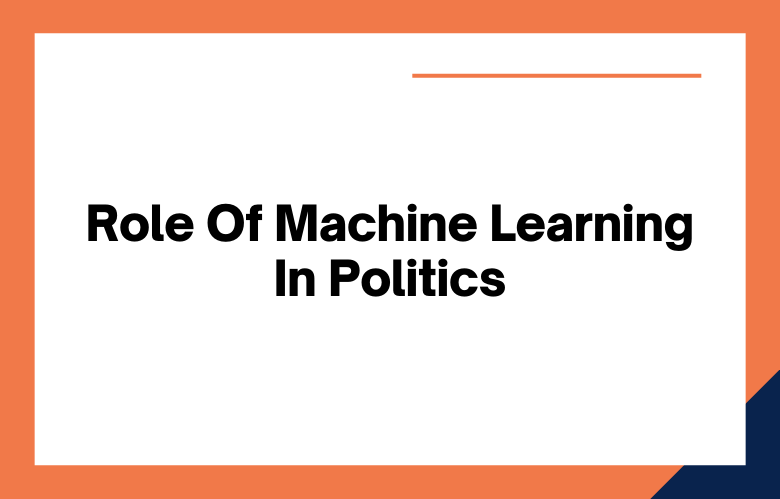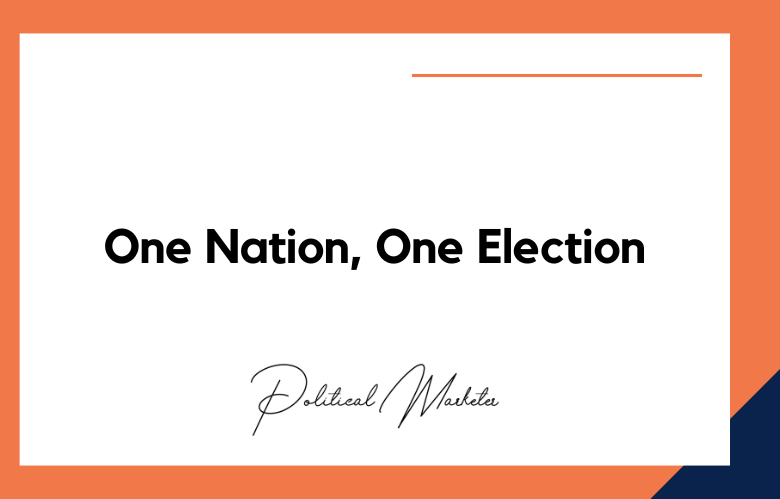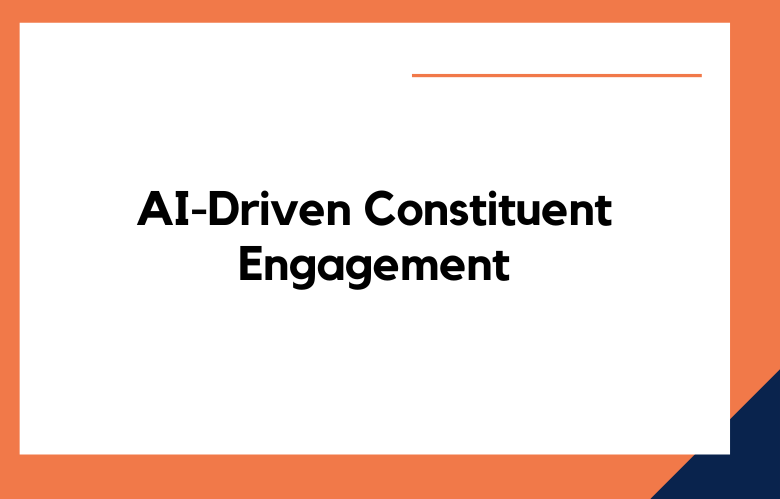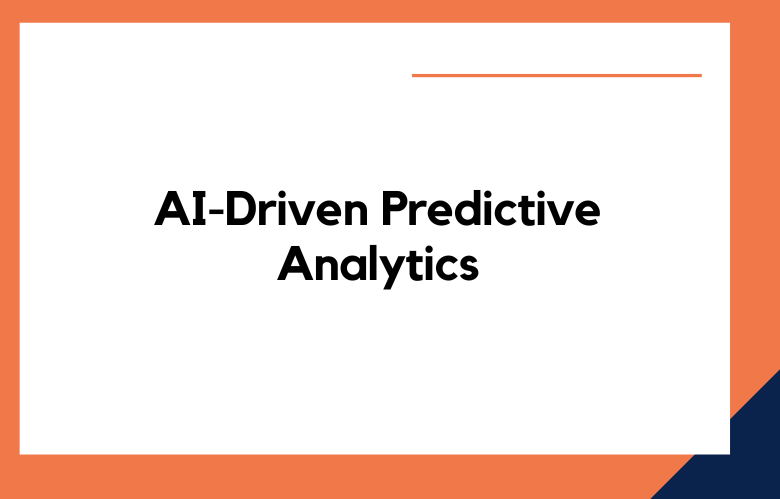Role Of Machine Learning In Politics: Politics is never static. The game and the tools to win an election have changed. Technology plays a massive role in shaping our society, but can it also make us more successful at winning elections?
Machine Learning allows politicians to fine-tune their message to resonate most strongly with individual voters. We will examine how machine learning is applied in politics and its impact on future campaigns.
Machine learning has been one of the most influential and popular tools used in the business world for a while now.
It is also currently being deployed to help decide which candidates should be endorsed by political parties during election campaigns and identify areas that are more likely to have high voter turnout rates.
We will explore how machine learning can provide an advantage over other methods for identifying competitive districts and voters.
Machine learning is an effective tool that can be used to enhance election campaign performance. It allows politicians to focus on the correct issues and connect with those running for office.
Machine learning also helps them identify problem areas and develop solutions more quickly. It’s time we take advantage of this technology in government; it could help us elect better leaders!
What is Machine Learning?
Machine learning is a computer science category that enables computers to learn without being explicitly programmed.
Machine learning is a new computer system that uses data to learn, grow, and improve. Unlike traditional software programs, which human programmers write, machine learning systems use data as input for computer programs or models to create predictions or decisions.
Machine learning refers to a program’s ability to learn without being explicitly programmed.
Why do we need Machine Learning in Politics?
A machine could operate without bias. The media, money, or campaign donations wouldn’t influence it.
Machine learning is the next step in the data analysis of political candidates. It’s already being used to recruit job candidates, but if we can find good politicians, maybe there will be less corruption.
You can use machine learning in politics to determine the political party of a given person, create predictive models for voter behavior, and optimize your campaign.
-
Improved Decision-Making: Machine learning algorithms can analyze large amounts of data to identify patterns and trends, helping politicians make more informed decisions based on data rather than intuition.
-
Constituent Engagement: Machine learning can analyze constituent feedback, social media activity, and other data to help politicians better understand and engage with their constituents.
-
Fraud Detection: Machine learning can detect fraudulent activity in political processes, such as voter fraud or campaign finance violations.
-
Resource Allocation: Machine learning can optimize the allocation of resources in political campaigns, such as fundraising or advertising, based on past performance and predicted outcomes.
-
Policy Analysis: Machine learning can analyze large amounts of data to identify correlations and insights that can inform policymaking and improve public welfare.
-
Automation: Machine learning can automate repetitive tasks, freeing time and resources for more strategic political campaigns or governance work.
-
Personalization: Machine learning can personalize political messaging and outreach, helping politicians connect with individual constituents based on their specific interests and concerns.
-
Constituent Needs Prediction: Machine learning can analyze data from various sources to predict the future needs of constituents, allowing politicians to be proactive in addressing these needs and improving their public service.Overall, machine Machineance political processes by improving decision-making, engagement, and efficiency while enabling more effective governance and public service.
How can Machine Learning be used to enhance election campaign performance?
Machine learning algorithms can be used to measure the effectiveness of a campaign.
Machine learning is getting computers to act without being explicitly programmed. A machine can learn by receiving input, processing it, and producing an output.
Machine learning is a viral word in the political world. It has been used for a long time to classify data, but now its applications have expanded into campaign strategy and even candidate selection.
Machine learning helps campaigns by using data to understand the political landscape and predict the best strategy.
Machine learning can be used for election campaigns to target voters more effectively and get them out on voting day.
Using data to maximize campaign performance can be a tricky task.
-
Targeted Messaging: Machine learning can analyze voter data and past campaign performance to predict the most effective messaging for different demographic groups or regions.
-
Fundraising Optimization: Machine learning can analyze past fundraising performance to optimize the allocation of resources, such as fundraising appeals, to maximize donations.
-
Volunteer Management: Machine learning can analyze volunteer data to optimize their allocation and engagement, increasing their impact on the campaign.
-
Voter Turnout Predictions: Machine learning can analyze historical voter turnout data to predict the likelihood of voter turnout in future elections, helping campaigns allocate resources accordingly.
-
Campaign Advertising Optimization: Machine learning can optimize campaign advertising by analyzing the performance of different ad formats, platforms, and messages to reach the target audience most effectively.
-
Voter Sentiment Analysis: Machine learning can analyze voter sentiment and preferences from social media and other sources to inform campaign messaging and strategy.
-
Constituent Feedback Analysis: Machine learning can analyze constituent feedback to identify patterns and trends that can inform campaign strategy and improve public service.
What are the limitations of using Machine Learning in Politics?
Machine learning is an up-and-coming tool for getting more involved in politics. Some people are concerned about using this technology, but it has proven beneficial.
Machine learning is an effective tool, but it’s not magic. It can solve interesting political problems, such as predicting whether people will vote and what they will likely do after the election.
One limitation is that the data in computer systems are not always accurate; for example, when a person’s race isn’t used correctly.
Machine learning can potentially make politics more transparent, but it’s still in its infancy. Parliamentarians need to use machine learning responsibly and ethically.
Some researchers have been working on using machine learning to predict political elections. The problem is that they aren’t as accurate as we would like them to be, and their predictions are mainly based on demographic data rather than actual social interactions.
-
Bias: Machine learning models are only as unbiased as the data they’re trained on. If the training data is biased, the model’s predictions and insights may also be personal, potentially perpetuating existing inequalities or skewing political outcomes.
-
Limited Context: Machine learning models may struggle to account for the complex social, economic, and cultural context of political issues, leading to suboptimal decisions or recommendations.
-
Transparency: Machine learning models can be opaque and difficult to understand, making it challenging to explain or justify their decisions to constituents or the general public.
-
Privacy Concerns: Machine learning can require large amounts of personal data, raising concerns about privacy and data security.
-
Human Judgment: Machine learning can complement human judgment but cannot replace it entirely. Human judgment is still necessary for making nuanced political decisions based on values, ethics, and context.
Role of Machine Learning in Politics
Machine Learning will be used to target voters with political ads.
Machine learning has become a key component in politics, especially regarding campaigns.
Machine learning is playing a role in politics. It’s been used for decades to create party platforms and predict voting patterns.
In today’s world, machine learning has been used in almost every industry, from medicine to business. For instance, politicians use artificial intelligence to predict people’s behavior and how it can be affected by their actions.
-
Policy Analysis: Machine learning can analyze large amounts of data to identify trends, correlations, and insights that can inform policymaking and improve public welfare.
-
Constituent Engagement: Machine learning can help politicians understand and engage with their constituents by analyzing voter feedback, social media activity, and other data.
-
Election Campaigning: Machine learning can optimize election campaigning by effectively predicting voter behavior, targeting messaging, and allocating resources.
-
Fraud Detection: Machine learning can detect fraudulent activity in political processes, such as voter fraud, campaign finance violations, or foreign interference.
-
Resource Allocation: Machine learning can optimize the allocation of public resources, such as funding for social programs or infrastructure projects, based on predicted outcomes and past performance.
-
International Relations: Machine learning can analyze global political trends and predict the impact of geopolitical events, helping politicians make more informed foreign policy decisions.
-
Government Operations: Machine learning can streamline government operations by automating repetitive tasks and enabling more efficient service delivery to constituents.
-
Legal Analysis: Machine learning can analyze legal documents, case law, and legislation to inform legal decision-making and policy development.
Conclusion
When it comes to politics, many hot-button topics have the potential to be divisive among voters. There’s no question that these issues will continue to arise during election cycles in our country and other countries worldwide.
One of the ways politicians use machine learning is by analyzing voter sentiment data, which helps them identify how their constituents feel about different political topics.
Machine Learning can also predict what future actions might take next if specific policies or legislation change. If you want more information on this topic, contact us today!
One way to get in touch is by filling out our online form on this site or give us a call at +91 9848321284. Let’s work together today!











